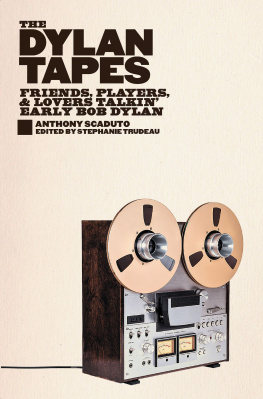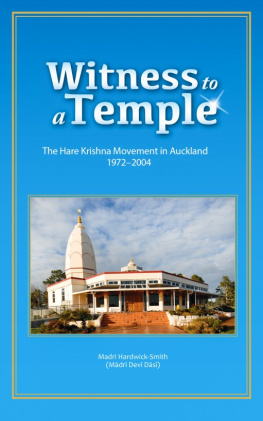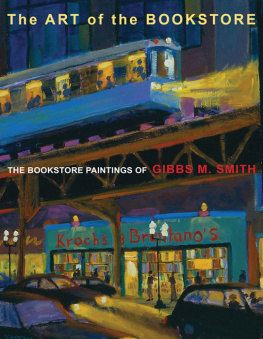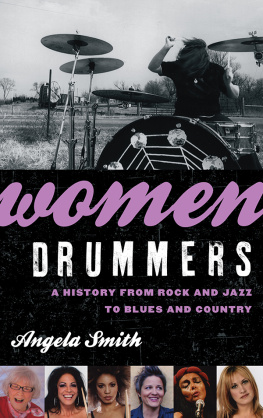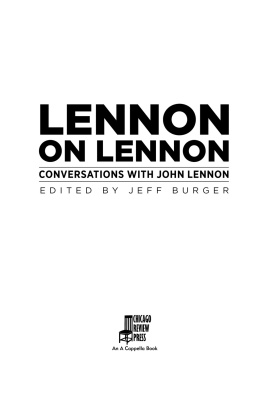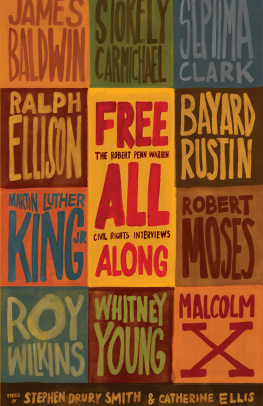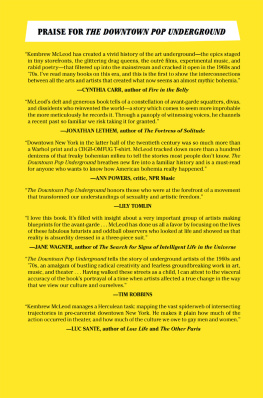


Published by
Princeton Architectural Press
37 East Seventh Street
New York, New York 10003
Visit our website at www.papress.com
2015 Ezra Bookstein
All rights reserved
No part of this book may be used or reproduced in any manner without written permission from the publisher, except in the context of reviews.
Every reasonable attempt has been made to identify owners of copyright. Errors or omissions will be corrected in subsequent editions.
Project Editor: Barbara Darko
Interior Design: Jan Haux
Cover Design: Paul Wagner
Special thanks to: Nicola Bednarek Brower, Janet Behning, Erin Cain, Tom Cho, Benjamin English, Jan Cigliano Hartman, Lia Hunt, Valerie Kamen, Simone Kaplan-Senchak, Stephanie Leke, Diane Levinson, Jennifer Lippert, Sara McKay, Jaime Nelson, Jimin Park, Rob Shaeffer, Sara Stemen, Kaymar Thomas, Joseph Weston, and Janet Wong of Princeton Architectural PressKevin C. Lippert, publisher
Library of Congress Cataloging-in-Publication Data
Smith, Howard, 19362014.
The Smith tapes : lost interviews with rock stars & icons 19691972 / edited by Ezra Bookstein.
pages cm
ISBN 978-1-61689-383-5 (paperback)
ISBN 978-1-61689-485-6 (epub, mobi)
1. Rock musiciansInterviews. 2. CelebritiesInterviews. 3. Motion picture actors and actressesInterviews. 4. InterviewsUnited States. 5. CountercultureUnited StatesHistory20th century. I. Bookstein, Ezra, editor. II. Title.
ML385.S5924 2015
781.660922dc23
2015017557
Transcription services provided by SMG Transcription.
: Howard Smith in the WABC/WPLJ studio, N.Y.C., 1971
: The original reels
Photography credits:
A&M Films / The Kobal Collection: , and all images of the reels/tapes and ephemera
Introduction
As the 1960s collided against the 1970s, there was an overwhelming feeling that the United States was a country on the brink. Social, cultural, and artistic forces were crashing together in a sea of building frustration, the naive spark of 60s optimism extinguished in its icy waters. That great swell of limitless possibilities had crested, stagnated, and soured; anger and disillusionment were taking its place. Broadly, there was Vietnam, the antiwar movement, Black Power, Red Power, womens liberation, gay liberation; Woodstock and Altamont; unchecked racism, police brutality, drug proliferation, narcs; the Manson murders, the Chicago 8 trial, Roe v. Wade, Watergate, the draft; SDS (Students for a Democratic Society), the Weathermen, the silent majority, and the first black mayors elected to major eastern cities.
Howard Smith sat squarely at the nexus of it all. His weekly Village Voice column, Scenes, which ran from 1966 through the 70s, helped define the papers influence within the counterculture. His beat was the cultural revolutionsex, drugs, rock n roll, art, fashion, changing mores and new ideas, delivered as scoops, reviews, and first-person prose. Smith realized both the importance and the power of youth culture very early on, but he never pandered to it. He chronicled and analyzed the moment as both a participant in and a critic of popular culture.
In 1969 Smith was hired to do a weekly radio show for WABC/WPLJ, intended to re-create his Village Voice column for the new FM airwaves. This put him in the unique position of having a concurrent voice in print and on-air, which he used to his advantage: Because of my column and my radio show, I had a lotta clout. And everybody wanted to announce anything new that they were doing in my column, and hopefully on my radio show too. This leverage kept him right where he wanted to bein the knowand afforded him incredible access to the personalities who were defining the era.
Between 1969 and 1972, Smith recorded hundreds of interviews with rock stars, celebrities, artists, politicians, writers, revolutionaries, and other architects of the counterculture. These conversations were loose and unscripted, and the vast majority of them were never intended to be heard in their entirety. In keeping with his Scenes style, Smith would edit a few sound bites from an interview to play during his radio show. Occasionally, the interviews were broadcasted live on-air, complete with callers phoned-in questions. Smith then stored the original, recorded audio reels of the interviews in the back of his West Village loft, with the plan that hed one day use them for a memoir. Instead they lay there frozen in time, buried under decades of life, until his son Cass Calder Smith unearthed them.
These interviews are time capsules, each holding a clear, unobstructed view into the past. Theyre intimate, uncensored, and unrushed conversations without an agenda. Though recorded more than forty years ago, they have an incredible immediacy to themyet there is a prescience as well. They often catch stars at definitive moments in their careers, coinciding with the release of a seminal album or career-changing film, before the interviewees themselves knew who they would go on to become: Dennis Hopper and Peter Fondas first American interview after Easy Riders premiere at Cannes; Janis Joplins last interview, four days before her death; Eric Clapton on his first time fronting a band, the day he recorded Derek and the Dominoss Live at the Fillmorethe list goes on.
In those days, Smith was booked up with concerts, openings, protests, readings, festivals, interviews, and party after party. On the scene, he was known to be outgoing, insightful, and, notably, sober. While so many were dropping out, he made the choice to drop in, and saw himself as a key journalist of the times. As the underground press sprang up across the country, it defined itself by promoting the politics of its staff, and feigned no journalistic objectivity. The Village Voice, however, defined itself as being outside of the mainstream media yet it was not part of the underground. So as Smiths mandate was to cover the moment, he was never caught up in the moment. He didnt go to a demonstration to shout, he went to reportalways curious, and always skeptical.
The counterculture promised imminent change, but its now more than forty years later and, in many ways, things havent changed at all. Our country is bogged down by brutal ground warfare on the other side of the world, in which no victory is possible and no end is in sight. Racism in the police force, though it has never waned, is increasingly front-page, with the killings of unarmed black men at the hands of police, sparking broad protests and rioting in the streets of our cities. Society is politically polarized and increasingly reactionary, and the groundswell of young optimismwhich elected the first black presidenthas succumbed to the corrosive force of disappointment. These conversations cut to the bone, highlighting the divisive lacerations in American society, which still have not healed, and evince why this book is more pertinent today than ever before.
In choosing which of his collections interviews to include in this volume, I adopted Smiths mandate: cover the moment. From wide-angle to close-up, these conversations frame a time that was both raw and unapologetic. The language has not been curbed toward todays sensibilitiesthat, after all, is the point. My aim is to transport you back there, to sit you down in the room with Howard as it all unfolds, in the present tense. This is not a history book telling you about the timethis
Next page

